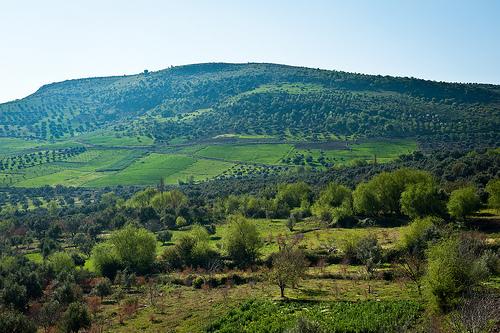Dutch Donor Support for Agricultural Insurance

In an interview with the GIIF Team, Aaltje de Roos, Senior Policy Advisor - Department for Sustainable Economic Development at the Ministry of Foreign Affairs of the Netherlands, explains why the Netherlands provides substantial donor support for agri-insurance programs in developing countries, including the World Bank Group's Global Index Insurance Facility.
Q: What role would the Netherlands like to see the World Bank Group, and specifically GIIF, play in the agri-insurance field over the next 5-10 years?
A: The World Bank Group, and GIIF especially, can boost the private insurance branch in developing countries to develop insurance products for low-income clients. The Netherlands believes that insurance supports self-reliance and reduces vulnerability. In the insurance sector, public private cooperation is crucial. The private sector must take care of the market and product development, and governments need to build the underlying policy framework, transparency of legislation and regulation to protect clients. Moreover knowledge and research and civil society can also play a role to contribute to a transparent and responsible insurance sector. In Dutch policy, we try to work in the so called “Dutch Diamond”: cooperation between private sector, civil society, research institutions and government.
Q: Do you think index insurance is an important and innovative new product in the agri-insurance sector?
A: Yes, indeed, index insurance is a critical and innovative new product. It reduces transaction costs. Indemnity insurance has proved far too expensive for smallholder farmers. The penetration of agri-insurance in low income countries is only .1 percent of agricultural GDP, and agriculture in Africa for instance represents 70 percent of overall GDP. So we have a long way to go.
Index insurance is not perfect, and there are still problems to be worked out such as whether payouts are adequate for farmers’ needs. Satellite technology could refine the design of index insurance products eventually, However, at present, this is still too expensive. Index insurance is a promising new breakthrough for agri-insurance for low-income clients.
Q: Is agricultural insurance the missing link to enable smallholder farmers to invest more in their land, allowing them to increase their access to finance while better managing their risks? Will agri-insurance lead to less food insecurity and better adaptation to climate change?
A: The Netherlands believes that agricultural insurance is important and could be a critical part of the agricultural value chain that is currently largely absent. Agri-insurance is complicated even in developed countries. It could be effectively linked to agri-credit and then protection could be provided to both farmers and credit institutions – a win-win solution. Insurance could eventually replace collateral and lower risks and costs of credit.
The beauty of agri-index insurance is that it can cover small investments, such as the Syngenta Foundation’s work in Africa through its Kilimo Salama insurance initiative which allows farmers to insure inputs only. Farmers can afford to insure a bag of seeds which is a low-cost investment up front and allows time to build farmers’ trust in the index insurance sector.
Q: A recent article on the CGIAR website - "Climate Change Could Crush East Africa's Agricultural Economy- Report" (Dec.13, '13), highlighted a recent IFPRI report "East African Agriculture and Climate Change," which acknowledges the importance of insurance schemes for small farmers but claims farmers have "no spare cash to spend on even small premiums." Yet GIIF's private sector partners have insured nearly 400,000 farmers, pastoralists and micro-entrepreneurs with index insurance products. Donor support has been critical in helping GIIF partners build nascent index insurance markets in developing countries. Do you think index insurance markets in developing countries are sustainable in the long term?
A: It may take another 10 years to build a viable agri-insurance sector in Africa able to serve low-income people. Insurance requires large markets to be cost-effective, and it will take time to build the markets and create farmer awareness and trust in insurance. Aside from our support to GIIF, the Netherlands is supporting the Access to Insurance initiative and the WB Agricultural Insurance Development Program to build the public sector infrastructure needed to support index insurance markets. The ILO’s Microinsurance Innovation Facility can also play an important role in awareness raising and insurance literacy.
As far as affordability, smallholder farmers do make investment decisions, and if they see insurance as valuable they will pay the premiums. When the mobile industry identified a potential market in rural areas in developing countries, no one believed that farmers would have the money to buy mobile phones. History has proved them wrong.
